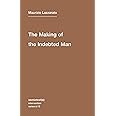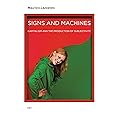Your Amazon Prime 30-day FREE trial includes:
| Delivery Options |  |
Without Prime |
|---|---|---|
| Standard Delivery | FREE | From £2.99* |
| Premium Delivery | FREE | £4.99 |
| Same-Day Delivery (on eligible orders over £20 to selected postcodes) Details | FREE | £5.99 |
Unlimited Premium Delivery is available to Amazon Prime members. To join, select "Yes, I want a free trial with FREE Premium Delivery on this order." above the Add to Basket button and confirm your Amazon Prime free trial sign-up.
Important: Your credit card will NOT be charged when you start your free trial or if you cancel during the trial period. If you're happy with Amazon Prime, do nothing. At the end of the free trial, you will be charged £95/year for Prime (annual) membership or £8.99/month for Prime (monthly) membership.
Buy new:
-7% £11.18£11.18
Dispatches from: Amazon Sold by: Amazon
Save with Used - Very Good
£2.10£2.10
£2.80 delivery 28 - 31 December
Dispatches from: World of Books Ltd Sold by: World of Books Ltd

Download the free Kindle app and start reading Kindle books instantly on your smartphone, tablet or computer – no Kindle device required.
Read instantly on your browser with Kindle for Web.
Using your mobile phone camera - scan the code below and download the Kindle app.

The Making of the Indebted Man – Essay on the Neoliberal Condition (Semiotext(e) / Intervention Series) Paperback – 16 Oct. 2012
Purchase options and add-ons
- ISBN-101584351152
- ISBN-13978-1584351153
- EditionReprint
- PublisherSemiotexte
- Publication date16 Oct. 2012
- LanguageEnglish
- Dimensions11.43 x 1.91 x 17.78 cm
- Print length144 pages
Frequently bought together

Customers who viewed this item also viewed
Product description
About the Author
Product details
- Publisher : Semiotexte; Reprint edition (16 Oct. 2012)
- Language : English
- Paperback : 144 pages
- ISBN-10 : 1584351152
- ISBN-13 : 978-1584351153
- Dimensions : 11.43 x 1.91 x 17.78 cm
- Best Sellers Rank: 993,174 in Books (See Top 100 in Books)
- 647 in Astronomy & Cosmology Education
- 863 in Evolutionary Psychology
- 2,014 in Biological Sciences Teaching Aids
- Customer reviews:
About the author

Discover more of the author’s books, see similar authors, read book recommendations and more.
Customer reviews
Customer Reviews, including Product Star Ratings, help customers to learn more about the product and decide whether it is the right product for them.
To calculate the overall star rating and percentage breakdown by star, we don’t use a simple average. Instead, our system considers things like how recent a review is and if the reviewer bought the item on Amazon. It also analyses reviews to verify trustworthiness.
Learn more how customers reviews work on AmazonTop reviews from United Kingdom
There was a problem filtering reviews right now. Please try again later.
- Reviewed in the United Kingdom on 30 June 2014This book is the most brilliant analysis I have read of the rise of neoliberal economics and its catastophic social and financial effects. Unlike some other books on the financial crisis (such as those of Christian Marazzi) it does not require any previous knowledge of economic theory. It is clearly and persuasively written. Drawing on ideas from both Nietzsche and Marx, Lazzarato presents a completely convincing account of the deliberately engineered changes in society, human psychology, and financial arrangements which have led to the progressive impoverishment of the bulk of the population. This is a major work for anyone who wishes to understand the world in which we now live.
- Reviewed in the United Kingdom on 6 February 2016Interest, the price of money, that institution that creates the credit/debt economy has to be outlawed as destructive to human society, as all the prophets have indicated to us in the past. That will mean a new nomos as all law,politics,social and economic arrangements have been subsumed by the totally corrupt system of capitalism.
- Reviewed in the United Kingdom on 27 August 2015Amazing book on human nature and the origins of guilty and responsability centred on the economy of debt.
- Reviewed in the United Kingdom on 30 October 2016thanksxxx
- Reviewed in the United Kingdom on 23 August 2014As a critique of the current financial situation 'The Making of the Indebted Man' has some occasional moments of lucidity, describing the Neoliberal political system and its relation to the international monetary market. Unfortunately these brief interludes are dispersed with a quagmire of the worst Fracno-phoney philosophy, attempting to describe the existential condition of the indebted man through a hackneyed, faux-revolutionary, Marxist perspective with a heavy dependency on the writings of Deleuze and Guattari. It is not original or helpful. At best it is best academic posturing, at worst outmoded myopic sophistry.
- Reviewed in the United Kingdom on 6 July 2015A book written by an Italian in French & translated into English by someone who learnt English 200 years ago.
Top reviews from other countries
 BlakeReviewed in the United States on 14 May 2014
BlakeReviewed in the United States on 14 May 20145.0 out of 5 stars Should be reqired reading for all high school students
Everyone from a farmer to the highest CEO or Politician should have to read this text. It is a blunt and brutal explanations of current monetary system, how we got their and the ideas that have propagated and failed as a whole in the different views of capitalism and its relation to debt and why it has a place in society but why at current it is also become more than a means to replace barter and trade and is now a means of control and sublimation. If you have any interest what so ever in economics, business or personal finance pick this book up. In its place in the series it really stands up and above to be it own separate text, and deserves more attention in society as a whole. Also incredibly good take on Greece and the EU and American financial crisis and where they will most likely go.
-
 The Dark Side of the MomReviewed in Spain on 12 September 2015
The Dark Side of the MomReviewed in Spain on 12 September 20155.0 out of 5 stars Visionaririo
Análisis fantástico, aunque ensayístico, de la economía de la deuda y las causas profundas de la crisis financiera europea... Fundamental para comprender las formas de explotación del capital contemporáneo.
 ThoughtworksReviewed in the United States on 10 October 2015
ThoughtworksReviewed in the United States on 10 October 20155.0 out of 5 stars Capital has become the Great Creditor, the Universal Creditor
Mr. Lazzarato is a man who should be heard. In his own words, "The debtor-creditor relationship--the subject of this book--intensifies mechanisms of exploitation and domination at every level of society, for within it no distinction exists between workers and the unemployed, consumers and producers, working and non-working populations, retirees and welfare recipients. Everyone is a "debtor," accountable to and guilty before capital. Capital has become the Great Creditor, the Universal Creditor." I have found that there is a refreshingly different angle to criticism of unregulated capitalism that comes from books written by Europeans, especially those with a philosophical bent.
 MeheretReviewed in the United States on 27 December 2020
MeheretReviewed in the United States on 27 December 20205.0 out of 5 stars Well Written and Clear
Great work
 John E. FieldReviewed in the United States on 12 October 2023
John E. FieldReviewed in the United States on 12 October 20234.0 out of 5 stars Yes, but not the first nor the best place these thoughts have appeared.
Lazzarato makes many good points in his manuscript. He uses a central metaphor of "the indebted man" to explore the complex web of obligation we all face in modern society. He notes the similarity between debt and Nietzsche's notion of moral guilt. He is arguing that today's financialized economies are not based in exchange but rather operate on a currency of trust that form the credit/debt relationship. By being removed from real activities this amounts to a completely subjective valuation process which ultimately only serves to sclerotically entrench privilege and reduce possibility for the future. He discusses the dynamic of anti-production which is basically the financial imperative to manufacture scarcity where scarcity has otherwise been conquered. Debt, of course, is a reflection of scarcity and so it is closely related to anti-production. And, he is right that we need to reconsider Marx in light of the new forms that money is taking in a highly financialized world.
Yes, I agree with a lot of his points. But, I think the metaphor of "indebted man" is overused and straining to encompass the gravity of the phenomenon. I think a lot of the things he says are points that others have previously made. I mean I don't think anything in here would have been a surprise to the careful reader of Galbraith's 1958 classic The Affluent Society. It's not a new thought; it's only a new analogy and it's an imperfect one at that. If you haven't seen these thoughts before, you should definitely expose yourself to them. And then go on to read more about why modern economies don't operate the way orthodox economic theory says they do.








